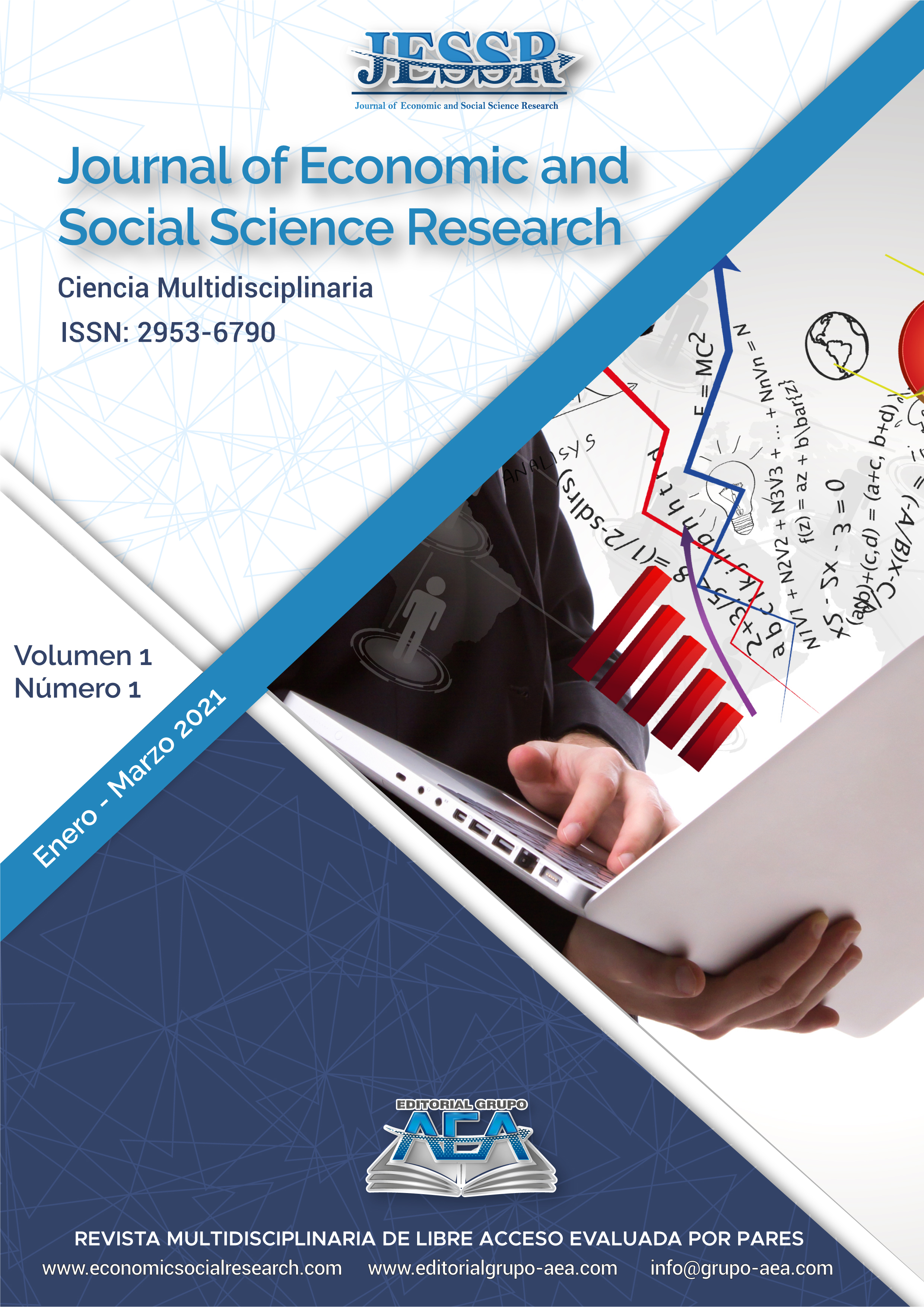Keynes and the financial crisis of 1929, overview of the great depression
Main Article Content
Abstract
The following paper is an essay about the Great Depression (crisis of 1929) and the theory that Keynes proposed to arise from it with the aim of understanding and publicizing three important topics of the book "De Keynes a Keynes. La Crisis Económica Global, En Perspectiva Histórica" by the author Federico Novelo Urdanivia; where the first topic exposed covers all kinds of information about the Great Depression: Its emergence, background, effects it brought with it and how the world economy was harmed by the aforementioned financial crisis; the second topic is led by the economist John Maynard Keynes, where his analysis of the economy during the Great Depression is explained and how he founded the Keynesian theory, pioneer of macroeconomics, as a result of it; And the last topic mentions the return of Keynes, although his theory was highly criticized, he returned with superior contributions and new economic terms, such as scarcity and aggregate demand, which helped to face the economic crisis that was happening at that time. The essay culminates with its respective conclusions, highlighting that Keynes' theory was very apt to face the financial crisis of the time, since his proposals became very useful in order to address the various ways in which these are presented before an economic crisis, and by empowering financial institutions, this theory was and remains one of the most studied in economics.
Downloads
Article Details
Section

This work is licensed under a Creative Commons Attribution-NonCommercial 4.0 International License.
How to Cite
References
Almunia, M., Bénétrix, A., Eichengreen, B., O’Rourke, K. H., Rua, G., Tenreyro, S., & Perri, F. (2012). From Great Depression to Great Credit Crisis: Similarities, Differences and Lessons. Economic Policy 62, 219–265. https://doi.org/10.1002/9781444390261.CH1
Anguera, M. T., Blanco-Villaseñor, A., Losada, J. L., Sánchez-Algarra, P., & Onwuegbuzie, A. J. (2018). Revisiting the difference between mixed methods and multimethods: Is it all in the name? Quality and Quantity, 52(6), 2757–2770. https://doi.org/10.1007/S11135-018-0700-2
Aristimuño, F. J. (2023). J. M. Keynes’s Criticism of J. Bernoulli’s Project of Mathematizing Probability. Topicos (Mexico), 65, 269–304. https://doi.org/10.21555/TOP.V650.2068
Baccini, A. (2004). High pressure and black clouds: Keynes and the frequentist theory of probability. Cambridge Journal of Economics, 28(5), 653–666. https://doi.org/10.1093/CJE/BEH030
Balakrishnan, R., & Milberg, W. (2019). Firm innovation and capitalist dialectics: The economics of Nina Shapiro. Economic and Labour Relations Review, 30(4), 467–477. https://doi.org/10.1177/1035304619880473
Bartolomé Rodríguez, I. (2017). Las sociedades con valores pignorables por el Banco de España y la Gran Depresión. Investigaciones de Historia Economica, 13(1), 14–25. https://doi.org/10.1016/J.IHE.2016.01.002
De vuelta a la economía de la gran depresión - Paul Krugman, Paul R. Krugman - Google Libros. (n.d.). Retrieved January 21, 2023, from https://books.google.es/books?hl=es&lr=&id=lzfo-ZMVessC&oi=fnd&pg=PA7&dq=la+gran+depresi%C3%B3n&ots=JfxEocY80m&sig=6Ep8zaq6Sj4qIq1qYn7aYDPjBOI#v=onepage&q=la%20gran%20depresi%C3%B3n&f=false
Ekbia, H. R., & Nardi, B. A. (2019). Keynes’s grandchildren and Marx’s gig workers: Why human labour still matters. International Labour Review, 158(4), 653–676. https://doi.org/10.1111/ilr.12146
Gera, I., & Singh, S. (2019). A Critique of Economic Literature on Technology and Fourth Industrial Revolution: Employment and the Nature of Jobs. Indian Journal of Labour Economics, 62(4), 715–729. https://doi.org/10.1007/s41027-019-00191-8
Guo, Z., Zhang, Z., & Liu, Y. (2019). The allocation of resources and the matthew effect of regional development. IOP Conference Series: Earth and Environmental Science, 332(2). https://doi.org/10.1088/1755-1315/332/2/022010
Huertas Vilca, K. S., Maguiña Rivero, O. F., & Durand Azcárate, L. A. (2021). Multiculturalism and economic models in Latin America. Revista de Filosofia (Venezuela), 38(99), 631–644. https://doi.org/10.5281/ZENODO.5677115
Keynes, J. M. (1937). The general theory of employment. Quarterly Journal of Economics, 51(2), 209–223. https://doi.org/10.2307/1882087
Montoya, M. L., Valle, E. O., & Burgos, A. V. (2022). Prospective of Democracy. The New Material Challenges of Democracy in the XXI Century. What’s Coming. Revista de Filosofia (Venezuela), 39(100), 13–27. https://doi.org/10.5281/ZENODO.5979693
Pietsch, W. (2019). A Causal Approach to Analogy. Journal for General Philosophy of Science, 50(4), 489–520. https://doi.org/10.1007/s10838-019-09463-9
Sennholz, H. F., & Ciclo Económico, E. (n.d.). La Gran Depresión. Retrieved January 21, 2023, from www.eseade.edu.ar






